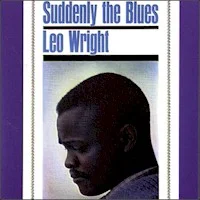Time: 36:40
Size: 84.0 MB
Styles: Vocal jazz
Year: 2017
Art: Front
[3:50] 1. Terribly So
[3:47] 2. Irresponsible Lovers
[3:32] 3. A Book You've Read Before
[2:56] 4. Relevant
[3:09] 5. Ownin' It
[2:47] 6. Clear
[2:28] 7. Impossible Thing
[3:34] 8. The Shiver Revisted
[2:05] 9. Mad Man At Large
[3:42] 10. May You Never Fall In Love
[2:38] 11. Sweet Confusion
[2:05] 12. Mad Man At Home
Howe Gelb - piano, voice; Thøger Lund - bass; Andrew Collberg - drums. With guests: Lonna Kelley - voice; Naim Amor - guitar. Recorded and mixed in Tucson, AZ at Wavelab Studio by Chris Schultz.
These are ‘Future Standards’ by The Howe Gelb Piano Trio, taking an outsider view of early gospel and rhythm and blues both part of the American musical socialization that he touched on with 2006’s ‘Sno Angel’. Now he’s on a jazz-tinged trip, bending the genre, taking it back to his shack.
On ‘Future Standards’, Gelb duets with the equally laconic Lonna Kelley as the pair come on like a seasoned duo managed by Broadway Danny Rose in Woody Allen’s film of the same name. Gelb’s piano sinks to a pedal-depressed ambience as his cavalier vocal boasts of new love and faded times, all In the best tradition of the American Songbook that he’s pretty damn cleverly adding a new volume to.
"This is an attempt at writing a batch of tunes that could last through the ages with the relative structure of what has become known as "standards". The likes of Cole Porter and Hoagy Carmichael done up by Frank Sinatra or Billie Holiday," suggests Howe. "Julie London had a lot to do with it."
These are ‘Future Standards’ by The Howe Gelb Piano Trio, taking an outsider view of early gospel and rhythm and blues both part of the American musical socialization that he touched on with 2006’s ‘Sno Angel’. Now he’s on a jazz-tinged trip, bending the genre, taking it back to his shack.
On ‘Future Standards’, Gelb duets with the equally laconic Lonna Kelley as the pair come on like a seasoned duo managed by Broadway Danny Rose in Woody Allen’s film of the same name. Gelb’s piano sinks to a pedal-depressed ambience as his cavalier vocal boasts of new love and faded times, all In the best tradition of the American Songbook that he’s pretty damn cleverly adding a new volume to.
"This is an attempt at writing a batch of tunes that could last through the ages with the relative structure of what has become known as "standards". The likes of Cole Porter and Hoagy Carmichael done up by Frank Sinatra or Billie Holiday," suggests Howe. "Julie London had a lot to do with it."
Future Standards mc
Future Standards zippy




















